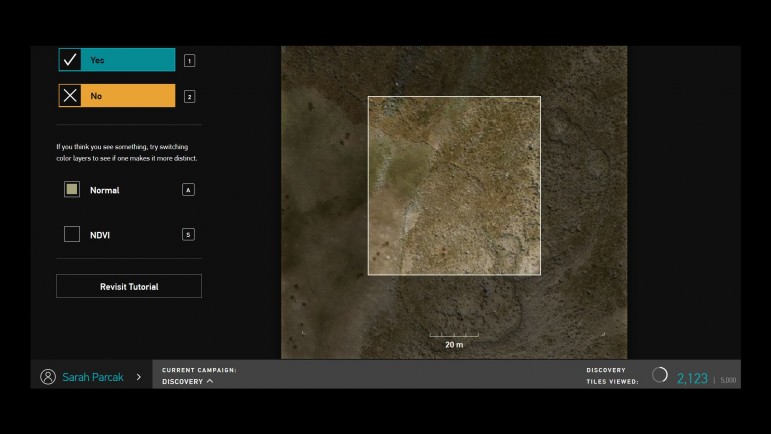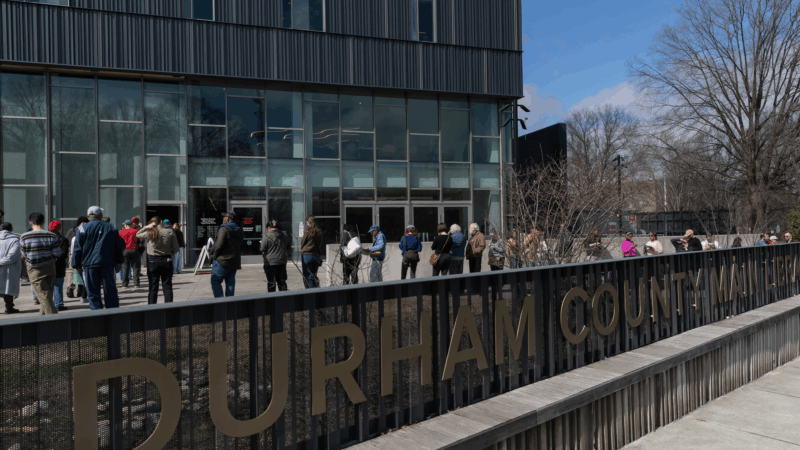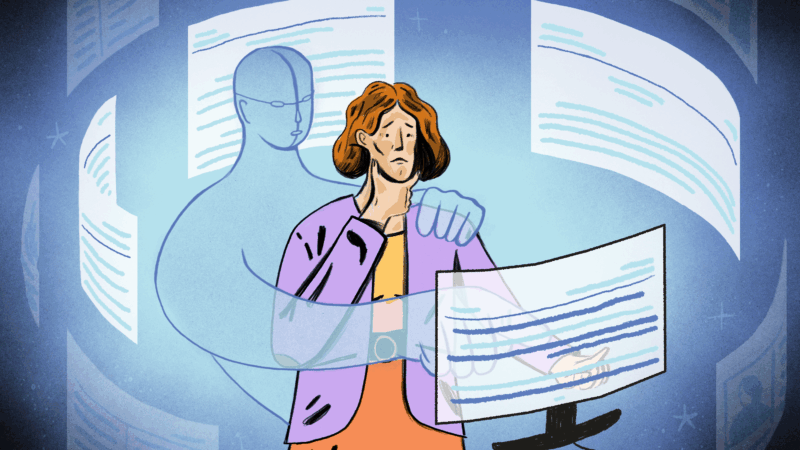The Story Behind Parcak’s “Archaeology from Space”
In a coworking space just off of Lakeshore Parkway sits a potential game changer for the future of archaeology – the headquarters of the non-profit GlobalXplorer. The web-based platform invites just about anyone to become a space archaeologist by scanning satellite images in search of undiscovered archaeological sites and signs of looting. It is the brainchild of Sarah Parcak, who is well known for her work using infra-red technology to locate lost tombs, pyramids and settlements in ancient Egypt.
Parcak started GlobalXplorer after she won a $1 million TED prize in 2016. The idea is to get more people involved in archaeology and use that collective power to map and protect sites around the world. That is the same inspiration behind Parcak’s new book, Archaeology from Space: How the Future Shapes Our Past, released Tuesday. It weaves together stories from her excavations and those of her colleagues to explain how space archaeology works and why it is important.
The “Real Indiana Jones”
In recent years, Parcak, an anthropology professor at UAB, has become a pioneer in the field. In addition to winning the TED prize, she has been featured on the BBC, named a National Geographic Explorer and she was interviewed on “The Late Show with Stephen Colbert” a few years ago. But Parcak says most days are not that exciting.
“It’s nice to be on a TV show, which doesn’t happen very often,” she says. “But most of the time, I’m teaching students, I’m writing grants, I’m speaking to school kids, I’m researching, I’m doing real work.”
In her book, Parcak does not shy away from the “real work.” She describes the tedious process of planning and funding excavations and the 4 a.m. wakeup calls to dig under the scorching sun in the Egyptian desert.
There are also joyous moments of discovery, from uncovering a small piece of pottery to seeing the first satellite images of the lost city of Tanis. Parcak says it’s like finding clues to reimagine the past.
“While obviously I can’t go back in a time machine to ancient Egypt,” Parcak says, “you know you have the rich archaeological record. You have images on tomb walls. And you’re just extrapolating all that data. So you’re creating the realest world you can based on every available piece of information.”
How the Future Shapes our Past
The work is not only about describing daily life in ancient Egypt. Parcak says studying the past helps prepare for the future. We can learn what caused ancient civilizations to rise and fall, or how people responded to issues like migration and flooding.
“The totality of our creativity, our ability to innovate quickly, our ability to adapt quickly – understanding all those things gives us a better understanding of how to cope with what’s going on today and we get that through archaeology,” Parcak says.
Archaeology From Space is not only about who came before us, but what is yet to come. The book explores the potential for using artificial intelligence and drone technology to enhance the field of archaeology. Parcak points to tens of millions of unexplored sites around the world that offer untapped cultural and economic value. She also stresses the impact of looting and climate change that threaten this archaeological history. In many ways, the book is a call to action.
“I hope it creates a lot of interest in archaeology,” she says. “I hope it inspires a lot of young kids to not just get into archaeology, but science.”
Parcak also hopes the book proves the importance of the humanities and the need to ask bigger ethical questions as society advances in science and technology. For many of those questions, answers could lie in the past.
Scientists make a pocket-sized AI brain with help from monkey neurons
A new study suggests AI systems could be a lot more efficient. Researchers were able to shrink an AI vision model to 1/1000th of its original size.
U.S. evacuates diplomats, shuts down some embassies as war enters fourth day
The United States evacuated diplomats across the Middle East and shut down some embassies as war with Iran intensified Tuesday while President Trump signaled the conflict could turn into extended war.
North Carolina and Texas have primary elections Tuesday. Here’s what you need to know
The midterm elections are officially underway and contests in Texas and North Carolina will be the first major opportunity for parties to hear from voters about what's important to them in 2026.
Trump promised the MAGA base no new wars. Then he went to war with Iran
President Trump promised his "Make America Great Again" voters an "America First" foreign policy. With the war in Iran, he's testing MAGA world's willingness to be flexible on one of its core beliefs.
Kristi Noem set to face senators over DHS shutdown, immigration enforcement
The focus of the hearing is likely to be on how Kristi Noem is pursuing President Trump's mass deportation efforts in his second term, after two U.S. citizens were killed by immigration officers.
College students, professors are making their own AI rules. They don’t always agree
More than three years after ChatGPT debuted, AI has become a part of everyday life — and professors and students are still figuring out how or if they should use it.








